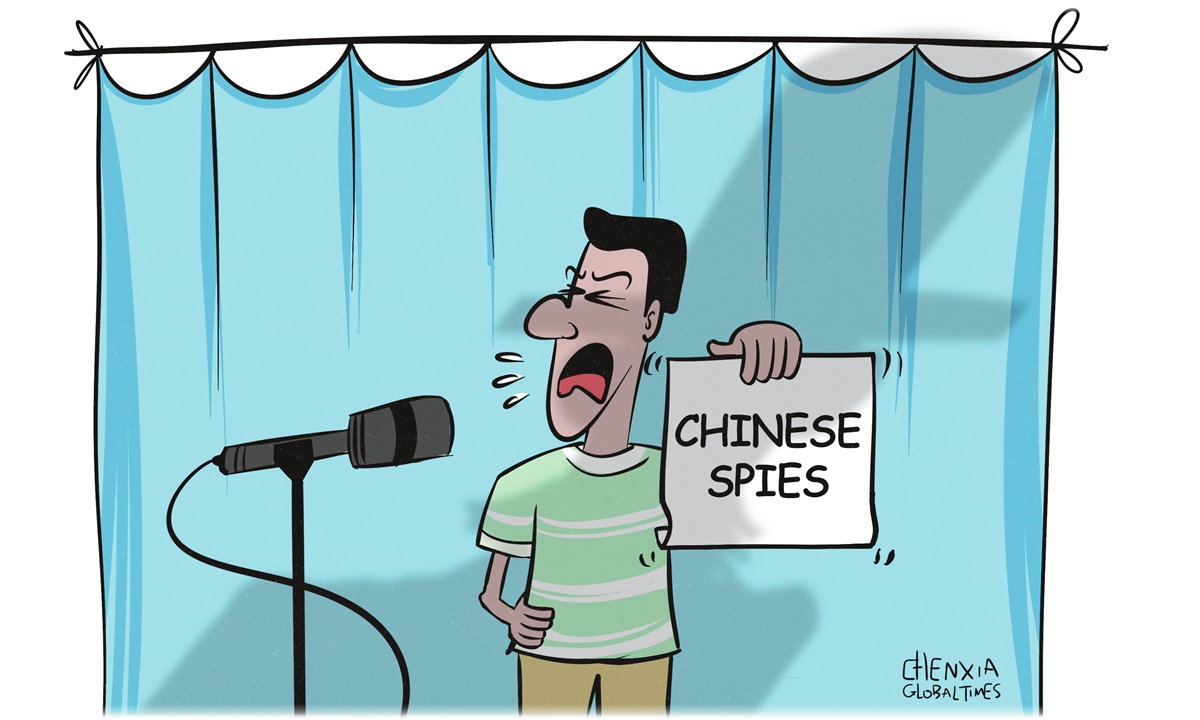
Illustration: Chen Xia/GT
Recently,
mk the Philippines has frequently sensationalized the issue of "Chinese spies." In an interview on Monday, Philippine Navy spokesperson Roy Vincent Trinidad falsely accused some Chinese nationals, who have lived in the Philippines for decades, of being "sleepers." He also stated that "a whole-of-nation approach is needed to resist China's strategy." The Philippine government's portrayal of China as a "threat" has expanded beyond maritime issues to encompass economic and political areas, attempting to build a comprehensive narrative of hostility through a patchwork of "China threat" claims.
However, the Philippines' propaganda campaign aimed at fostering an "anti-China" atmosphere in the country is a miscalculation that will only make the Philippines a bigger victim in geopolitical games.
From staging a "pathetic drama" in the South China Sea to shaping narratives regarding "Chinese spies," "cyberattacks tied to Chinese hackers," "illegal Philippine Offshore Gaming Operators operations linked to criminal activities, and the discovery of underwater drones," these have all become tools for the Philippines to smear China. While the Philippine government presents itself as concerned about "national security," it is, in reality, engaging in highly politicized media manipulation.
Some Philippine military forces and politicians, by continuously amplifying the "Chinese spies" narratives, aim not only to gain more domestic military power but also to secure more security and military support from Western countries like the US, according to Ding Duo, a deputy director at the Institute of Maritime Law and Policy at the China Institute for South China Sea Studies. "Fanning anti-China sentiment has become a tool for some Philippine politicians to gain benefits," said Chen Xiangmiao, director of the World Navy Research Center at the National Institute for South China Sea Studies.
The Philippines claimed on January 30 that it had arrested five Chinese nationals, accusing them of engaging in espionage activities concerning a Philippine coastguard ship in Palawan. In response to these claims, the Chinese Embassy in the Philippines issued a statement firmly denying the accusations of so-called espionage, urging the Philippine side to base its judgment on facts, not to make presumptions of guilt, stop airing groundless speculations about the so-called "Chinese spy case."
The Philippines' smear tactics are hardly novel; they are not only an old trick used by the US but also highlight how the Philippines' current policy toward China is slipping into an impulsive and irrational abyss.
The Philippine government seems to be creating a negative cycle by misleading the public: They hope to sow doubt among the Filipinos regarding whether "Chinese spies" are penetrating their life, or if Chinese projects pose a security threat, lower public goodwill toward China and heighten anti-China sentiments. These moves will also lead to concerns among Chinese tourists, who might fear arbitrary checks or even be suspected of espionage while traveling in the Philippines.
Once the anti-China sentiment generated by this negative cycle takes root, it will be difficult to undo. Certain political forces within the Philippines are short-sighted and ignore the long-term foundation of bilateral relations - trust - between the people and non-governmental cooperation. Building trust takes time, but destroying it maliciously is much easier. Public distrust often takes longer to dissipate than diplomatic disputes. This will also affect trade between the two countries and deepen misunderstandings in cultural exchanges. People-to-people friendships are the bond in international relations, and excessive opposition can harm this bond.
The "Chinese spy" accusation has always been a baseless slander. Manila should recognize that the "China threat" narrative cannot solve practical problems, but instead will inflict irreparable damage to the bilateral cultural and economic ties between China and the Philippines.

